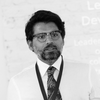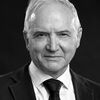ESWI Education Hub provides articles and links to important scientific papers, reviewed by the ESWI Board members, and other online educational activities
- Home
- Education hub
- Experts
Search experts on our site

Dr Lwazi Manzi is a medical doctor specialised in Emergency Medicine. She obtained her degrees from the University Of Cape Town.
She has a strong history of executive and industry leadership. Her 15 year career spans emergency medicine, music, television and film production and media relations. In 2019 she was appointed Media Liaison Officer and the Spokesperson for the Minister of Health in South Africa during a pivotal period in the history of South Africa’s health policy, namely the introduction of the National Health Insurance bill and through the management of the COVID-19 pandemic. Dr Manzi has been appointed as Head of the newly created Secretariat of the African Union Commission on COVID-19. The Commission will work within the established African Continental Strategy structures and the Africa CDC on the control of the COVID pandemic.

Director Research Institute SHARE; advisor to WHO, EU & Health Council; scientific advisory boards for / scientific advice to various pharmaceutical industries and consultancies, inclusive some RuG spin-offs; various editorships, inclusive PLoS One, Expert Reviews of Pharmacoeconomics & Outcomes Research, Expert Review of Clinical Pharmacology and BMC Health Services Research; assessor for Kenniscentrum (KCE; Belgium); member JCVI; external teacher (for example, Bielefeld, Germany); assessor All Wales Medicines Strategy Group (Grwp Strategaeth Meddyginiaethau Cymru Gyfan), shareholder Health-Ecore; owner Pharmacoeconomics Advice Groningen

Mamadou Malado Jallow graduated from the Senegalese High School in Banjul (The Gambia) in 2012. Subsequently, I was admitted at the University Cheikh Anta Diop de Dakar (Senegal) with a cooperation scholarship to pursue a degree in Biology. In 2015, I was selected to pursue a Master degree in Parasitology after achieving my BSc with a distinction. As part of my thesis, I joined the Pasteur Institute in Dakar in July 2017 and contributed in several research projects. My research interest is to investigate the epidemiology and the genetic characteristics of Influenza A viruses at the human/animal interface as well as the risk assessment of Avian Influenza Virus (AIV) emergence and transmission to Human.
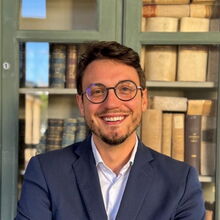
Marco Del Riccio is a Medical Doctor specialized in Public Health and Preventive Medicine at the University of Florence, where he currently serves as a Researcher and Assistant Professor. He is also a Guest Researcher at the Netherlands Institute for Health Services Research (Nivel), where he initiated his PhD journey in collaboration with Dr. John Paget. As a PhD candidate, his research explores the impact of the COVID-19 pandemic on the epidemiology and burden of respiratory viruses, as well as preventive medicine strategies. He is completing his PhD at Radboud University Nijmegen under the supervision of Prof. Dr. Aura Timen. He is a member of the Scientific Secretariat of the Adult Immunization Board and other national and international initiatives, including the Global Influenza Initiative (GII) and the Steering Group on Influenza Vaccination. He is also part of the Board of the National Working Group on Communication for Public Health of the Italian Society of Hygiene, Preventive Medicine and Public Health. He is author of over 70 scientific publications in international indexed journals and his main research interests include the epidemiology, burden of disease, and prevention strategies for respiratory infections, as well as vaccine hesitancy and vaccine literacy.
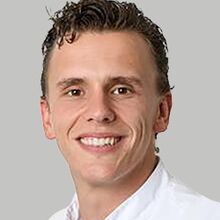
Nationality: Dutch
Position: Intensivist, Spaarne Gasthuis, Amsterdam, The Netherlands; and Senior Scientist, Erasmus MC, Rotterdam, The Netherlands
Research fields: Special interest in acute care and infectious diseases
ESWI member since 2016
Marco Goeijenbier completed his Ph.D. in virology, focusing on "Haemostasis and Virus Infection," at Erasmus University Rotterdam in 2015. He currently serves as a specialist in acute internal medicine and critical care at Spaarne Hospital in Haarlem, The Netherlands. His expertise spans various aspects of infectious diseases, particularly in critical care medicine and viral infections. In addition to his clinical work, Goeijenbier holds a research position at Erasmus MC in Rotterdam, where he mentors PhD students exploring critical care medicine and viral infections. His research interests focus on severe acute respiratory infection (SARI) pathogenesis, epidemiology, and their interaction with the coagulation system.
Some of Goeijenbier’s most published articles include:
- Presence of procoagulant peripheral blood mononuclear cells in severe COVID-19 patients relate to ventilation perfusion mismatch and precede pulmonary embolism
- Determinants of vaccination uptake in risk populations: A comprehensive literature review.
- Benefits of flu vaccination for persons with diabetes mellitus.
- Early Patient-Triggered Pressure Support Breathing in Mechanically Ventilated Patients with COVID-19 May Be Associated with Lower Rates of Acute Kidney Injury
Dr. Goeijenbier is ESWI’s lead member and Chair in the Influenza Diabetes Community (IDC). The IDC connects leading diabetes, patient, scientific, and professional organizations around the common aim of protecting persons living with diabetes from influenza and other viral respiratory diseases like COVID-19.
Starting January 2023, Dr. Goeijenbier has taken on the role of Chair of Medical Research and Education at Spaarne Hospital. Furthermore, since January 2024, Marco is the Editor in Chief for Nature Springer Tropical Diseases, Travel Medicine, and Vaccines.
- The Two-Way Street: When Respiratory Viruses Meet Chronic Illness
- When Infections Meet NCDs: The Bidirectional Relationship Between Cardiometabolic Conditions and Respiratory Viruses
- If you do not test, you will not know - a focus on COVID-19
- Essential skills and career prospects for early career scientists
- Uncovering the Contrasts and Connections in PASC: Viral Load and Cytokine Signatures in Acute COVID-19 versus Post-Acute Sequelae of SARS-CoV-2 (PASC)
- Can vaccinated individuals still get COVID?
- Is it dangerous to get an influenza and COVID-19 vaccine at the same time?
- Presence of procoagulant peripheral blood mononuclear cells in severe COVID-19 patients relate to ventilation perfusion mismatch and precede pulmonary embolism
- Burden of acute respiratory virus infections
- The Ninth ESWI Influenza Conference: Highlights
- The bidirectional relationship between influenza and diabetes mellitus
- Burden of disease - Long-Covid and other post-infection syndromes
- Virus infections, blood clots and bleeding
- Spotlight on the burden of flu for people living with diabetes
- What about respiratory virus infections? Prevention for people living with diabetes in Covid times
- COVID-19 Treatment and Medication
- Influenza in persons living with diabetes: Pathogenesis and prevention

Dr. Maria Van Kerkhove is the COVID-19 Technical Lead for the World Health Organization and the Head of Emerging Diseases and Zoonoses in WHO’s Health Emergencies Programme. She is an infectious disease epidemiologist.
Van Kerkhove’s research spans zoonotic emerging and re-emerging high threat pathogens such as avian influenza, MERS-CoV, SARS, SARS-CoV-2, Ebola, Marburg, plague and Zika. She is responsible for the health operations and technical aspects of the global COVID-19 response as well as developing strategies for the prevention, preparedness and control of epidemic and pandemic zoonotic pathogens. For more than 25 years, her research has focused on factors associated with transmission between animals and humans, the epidemiology of zoonotic pathogens, and ensuring that research directly informs public health policies for action.
Van Kerkhove completed her undergraduate degree at Cornell University, an MS Degree in epidemiology at Stanford University and a PhD in infectious disease epidemiology at the London School of Hygiene and Tropical Medicine. Prior to joining WHO in 2017, she was the Head of the Outbreak Investigation Task Force at Institut Pasteur’s Center for Global Health, in Paris, where she was responsible for establishing public health rapid response teams for infectious disease outbreaks. Her previous roles include a senior fellow at Imperial College London in the MRC Center for Outbreak Analysis and Modelling, and an epidemiologist at the Institut Pasteur in Cambodia.

I received my degree in Medicine and Surgery from the University of Palermo, Italy in 2020. Since 2021, I’ve been attending the Graduate School of Geriatrics and Gerontology from the same University. Before starting the Graduate School, I worked on the COVID-19 vaccination campaign as a vaccination doctor. My research is mainly focused on the most common diseases affecting older people, such as neurocognitive disorders. I’m the author of two articles published in international scientific journals.

Nationality: French
Position: research director at INRAe, France
Research fields: Animal respiratory viruses
Mariette Ducatez is research director at INRAe, in Interactions Hosts-pathogens (IHAP) research unit. She worked in Luxembourg and then in the United States before coming to Toulouse. She has been a researcher in virology since 2006 with a particular interest in influenza viruses with a human-animal interface, and more generally animal respiratory viruses. She works both on animal virus surveillance projects (mainly in Africa), projects aimed at understanding the pathogenesis and transmission of these pathogens, as well as on issues of prevention and control of viral diseases.
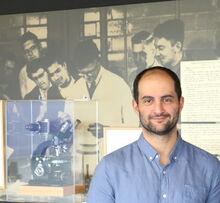
Dr Marios Koutsakos completed undergraduate and post-graduate studies at Imperial College in London. He subsequently undertook a PhD and post-doctoral training in the Department of Microbiology and Immunology, University of Melbourne, focusing on understanding protective immunity to influenza B viruses He is now a group leader at the Doherty Institute, working on dissecting the antigenic evolution of influenza viruses as well as the evolution of antibody-mediated immunity to influenza viruses in order to improve vaccine design.

Dr Mark Eccleston-Turner is a Senior Lecturer in Global Health Law. He specialises in infectious diseases and international law, particularly the law of international organizations, pathogen sharing and equitable access to vaccines in a pandemic.
Mark has provided advice to the UK Foreign and Commonwealth Office and Department for International Development, and is a member of UK Parliament COVID-19 Outbreak Expert Database. He has appeared as a witness before the Foreign Affairs Select Committee, and has provided evidence to the Joint Committee on the National Security.
He has held visiting positions at the Brocher Foundation, in Geneva, Georgetown University School of Law, and as an Emerging Leader in Biosecurity Fellow at the Johns Hopkins Centre for Health Security. He has also worked as a Consultant to the World Health Organisation.
Mark regularly appears in national and international media to discuss international law and infectious diseases. His interviews have appeared on: Al Jazeera TV, Euronews, BBC News, Sky News, New York Times, Washington Post, South China Morning Post, and The Times. In 2021, in recognition of his work on equitable access to vaccines, Mark was made a Fellow of the Royal Society of the Arts.

Nationality: Dutch
Position: Professor Clinical Biology, Chair of the department Medical Microbiology
After finishing medical school (1991) and completing his PhD research on HIV treatment (1996) at the University of Amsterdam, Menno specialized in clinical microbiology at the Academic Medical Center (AMC). He worked as consultant microbiologist at Leiden University Medical Center and the AMC (2000-2003) before moving to Ho Chi Minh City, Vietnam, where he set up and headed the Virology laboratories at the Oxford University Clinical Research Unit and Hospital for Tropical Diseases. In 2008, he returned to Amsterdam where he was appointed professor of clinical virology and chair of the Department of Medical Microbiology at the Academic Medical Center. After having chaired both departments at the AMC and VUmc since 2018, he is the chair of the merged Amsterdam UMC Department of Medical Microbiology & Infection Prevention since 2020.
As head of the Department, Menno de Jong’s interest in clinical microbiology and infectious diseases is broad and inclusive. However, inspired by his previous work on avian influenza in southeast Asia, his specific research interests remain focused on understanding the pathogenesis and improving treatment of influenza and emerging respiratory viruses, such as SARS-CoV-2. To this extent, his research activities include observational and interventional clinical studies in an international context, complemented by patient-oriented translational research embedded in these studies.

Passion for people, virology and music! I am a people person who thrives from making connections between diverse, enthusiastic people to enable progress in the communities where I live and work.
Then comes my passion for learning, understanding and teaching others about viruses, mainly about influenza. About the fascinating ability of Influenza viruses to escape the immunity or become unpredictable. My work has taken me from Anatolia to the United States and now to France and hundreds of places in between, all in an effort to do my part in improving public health by bringing my expertise in vaccine development and sharing my knowledge about influenza with all relevant stakeholders to increase disease awareness and prevention.
And finally, music which is my refuge from busy everyday life, and which I believe has the magic power that connects people, and repairs souls. I sing when I need to find my way to my soul, and when I feel home-sick I play my baglama, an Anatolian folk music string instrument.

Merel Hellemons is a pulmonologist at Erasmus MC, with a focus on lung transplantation. Together with her colleagues from the lung transplant team, she assesses and guides patients before and after a lung transplant. Hellemons has a special interest in (severe) interstitial lung disease, for which lung transplantation can sometimes be the last remaining treatment.
Furthermore, she is involved in post-COVID care, conducting scientific research and innovation on lung transplantation and recovery after COVID-19.

Nationality: United States
Position: Chief, Respiratory Diseases Branch, Division of Microbiology and Infectious Diseases, NIAID/NIH
Research Fields: Antiviral therapy for RVI, Vaccination in Immunocompromised Hosts
Short description:
Dr. Michael Ison completed his medical school training at University of South Florida College of Medicine and obtained training in Internal Medicine at Oregon Health Sciences University in Portland, Oregon followed by Infectious Diseases at the University of Virginia. After spending 17 years as a Professor in the Divisions of Infectious Diseases and Organ Transplantation at Northwestern University Feinberg School of Medicine, he moved to become the Respiratory Disease Branch Chief within the Division of Microbiology and Infectious Diseases at NIAID/NIH.
During his fellowship, he was mentored by Drs. Frederick Hayden, Larisa Gubareva, and Tom Brachiale. His research focused on the immunopathogenesis of influenza and its treatment in immunosuppressed and hospitalized patients. He is currently also the Chair of the Antiviral Group of the International Society of Influenza and Other Respiratory Viruses. He has led a number of clinical studies focused on influenza, RSV and COVID-19 antivirals and vaccines at Northwestern University Feinberg School of Medicine, including the development of a serial sampling biobank, a convalescent plasma bank and a clinical datamart.
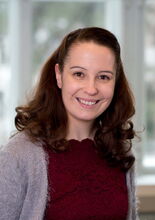
Monika Redlberger-Fritz is a virologist at the Center for Virology at the Medical University of Vienna (Austria), specialised in influenza virus evolution, vaccine effectiveness, and current influenza vaccine research.
Her areas of responsibility are: Head of the National Reference Laboratory for the Detection and Surveillance of Human Influenza Virus Infections in Austria; Head of the National Reference Laboratory for Respiratory Syncytial Viruses Austria; Head of the Surveillance Network for Respiratory Viruses in Austria; and member of the National Vaccination Committee.

Nabil Jamshed, MSc MBA BBA
Guy's and St Thomas' NHS Foundation Trust, United Kingdom
Mr Nabil Jamshed works as a Head of Corporate Governance for Integrated Specialist Medicine Clinical Group and Chief of Staff at Guy’s and St. Thomas’ NHS Foundation Trust.
He has over 20 years of experience working in the NHS and, internationally, with the Ministry of Public Health and other health agencies in Qatar.
He has operating experience in working with a variety of boards in facilitating the development of effective governance structures and successful board dynamics. He has first-hand experience in introducing constructive governance and risk management models, developing national policy and strategy, working with several Integrated Care Systems (ICS) and understanding and experience in dealing with complex IT systems.
In addition to working with the NHS and health organisations, Nabil had worked in other sectors such as the English Cricket Board and charities, helping with governance and risk management developments and improvements.
As the elected member of the European Health Management Association (EHMA) Scientific Planning Committee, Nabil contributes to wider European healthcare management developments. He has a personal interest in the inclusion agenda and has led various developments within the NHS to support the Equality Diversity and Inclusion efforts and served as a co-chair of the NHS staff BAME network.
Last year, Nabil was appointed as a Non-executive Director at the Black Country Healthcare NHS Foundation Trust. He contributes to the national development and debate on the Equality Diversity and Inclusion through his active membership with the Seacole group of NHS NED and contributions to the APNA (Asian Professionals’ National Alliance) NHS which is a South Asian Heritage NHS Staff Leaders’ network across health and social care.

I am a clinician-investigator with a passion for translational research in pediatrics and global health. My interest and research focus is respiratory syncytial virus (RSV) and maternal vaccination. My research has created an overview of vaccine development with an urgent message to make vaccines accessible in the developing world, where the majority of the children die. I aspire to work as a research-oriented clinician scientist in pursuit of an effective low-cost vaccine against RSV.

Dr Nathan Brendish is a NIHR Clinical Lecturer in Infectious Diseases & General Internal Medicine. His research interests focus on the clinical impact of point-of-care tests for infectious diseases.
Dr Brendish’s expertise in rapid diagnostic tests in severe respiratory virus infection stems from his PhD under Professor Tristan Clark at the University of Southampton. Dr Brendish continues to be part of Prof Clark’s research group.
Dr Brendish was the lead study fellow on the ResPOC trial. The ResPOC trial was a large, pragmatic, randomised controlled trial of routine molecular point-of-care testing for respiratory viruses in adults presenting to hospital with acute respiratory illness versus standard care. This showed that multiplex molecular testing at the point-of-care for respiratory viruses improved diagnosis of influenza, improved appropriate neuraminidase inhibitor prescribing, improved appropriate use of isolation facilities, and decreased length of hospital stay. This seminal study was published in The Lancet Respiratory Medicine in 2017.
Dr Brendish was also the lead fellow for the CoV-19POC trial of molecular point-of-care testing for SARS-CoV-2, which also showed multiple clinical benefits of ultra-rapid PCR testing, and was published in The Lancet Respiratory Medicine in 2020.
Dr Brendish started his research career as a study physician in the NIHR Southampton Clinical Research Facility, focussing on malaria vaccine trials.

Broadcaster, entrepreneur and human rights campaigner Norah Casey was formerly a Dragon in the popular television series Dragons’ Den and is a well-known radio and television personality. The 2nd Edition of her book Spark! was recently published by Penguin and her TEDx talks include The Cure for Grief and The Courage to leave (her own testimony of domestic violence). Her digital learning platform Planet Woman seeks to empower women, and much of her pro-bono work is devoted to mentoring female founders globally. She serves on the European Board for Vital Voices, established in 1997 by Hillary Rodham Clinton and U.S. Secretary of State Madeleine Albright. She is a founder of the London-based Women's Irish Network and is a member of The International Women's Forum. Norah is currently serving on the Irish government Forum on a Family Friendly and Inclusive Parliament.
A journalist and former nurse, her awards include: Woman of the Decade Award from the Women’s Economic Forum in Delhi; Ireland’s Philanthropist of the Year award; five times Publisher of the Year; and Veuve Clicquot Business Woman of the Year. Her work to highlight domestic violence was recognised with a Safe Ireland SÍLA Leadership Award and she received the 2019 Lord Mayor Of Dublin Award. She is an Honorary Fellow of the Royal College of Surgeons and received the Honorary Graduate Award for 2018 from BFEI.
As well as owning Harmonia Publishing Ltd, Norah is an experienced broadcaster and producer. She was the Ambassador for Dublin Honours Magdalenes and executive producer of the 2022 television documentaries Ireland’s Dirty Laundry. Her work can be viewed at norahcasey.com.
Norah’s business expertise is extensive having acquired and grown multiple business to multi-million euro global success stories, as well as a wide range of business investments in Ireland and internationally. She has mentored leading global business leaders, politicians and public figures. Her corporate expertise includes leadership, corporate teambuilding, mentorship, innovation and strategy.
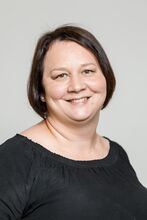
Nationality: Finnish
Position: Clinical Lecturer and Adjunct Professor, Paediatrics and Adolescent Medicine, University of Turku
Research Fields: respiratory tract infections, especially acute otitis media
ESWI member since 2022
Dr. Tähtinen received her Doctor of Medicine from the University of Turku in 2004. After graduating, she worked as a GP and resident in paediatrics in Central Finland and then as a PhD student at the University of Turku. In 2012, she successfully defended her PhD thesis entitled “Treatment of acute otitis media”. The same year, she received the ESPID Young Investigator Award and was selected as a Researcher of the Year by the National Graduate School of Clinical Investigation. After obtaining her PhD degree, Dr. Tähtinen continued her specialisation in paediatrics at the Turku University Hospital, Department of Paediatrics and Adolescent Medicine.
In 2013-2015 and in 2017 Dr. Tähtinen moved to the United States to work as a Postdoctoral Research Fellow at the Boston University School of Medicine and Harvard T.H. Chan School of Public Health. During her time in Boston, Dr. Tähtinen also studied at the Harvard Medical School Global Clinical Scholars Research Training Program in which she graduated in 2015.
Currently, Paula Tähtinen is an Adjunct Professor and Clinical Lecturer at the University of Turku, Finland. She is also working as a paediatrician at Turku University Hospital. She is leading her own research group with the main focus on prevention and treatment of respiratory tract infections. Dr. Tähtinen has been actively involved in the development of scientific and professional education at the University of Turku. She has also served as a Young ESPID (European Society for Paediatric Infectious Diseases) country representative and a committee member at the ESPID Research Networking Committee. In 2022, Dr. Tähtinen received the Helena and Niilo Hallman Prize for the best young researcher in the field of paediatrics.
- Burden of disease in acute respiratory virus infections
- What is the difference between influenza and a common cold?
- Immunisation & Treatment - Societal benefits of immunising children
- Webinar: Immunisation & Treatment
- Respiratory tract infections in children - our paediatrician's insight and bold vision for the future
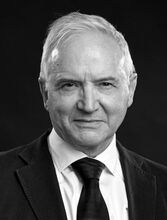
Nationality: British
Position: Respiratory physician and mucosal immunologist, Professor of Experimental Medicine, Imperial College, London
Research fields: Lung immunology, RSV, received a lifetime achievement in work on RSV research (Chanock prize, US, in 2012)
ESWI member since 2008
Peter Openshaw MD PhD CBE is Professor of Experimental Medicine at Imperial College London, UK. A respiratory physician and mucosal immunologist, his research focuses on how the immune response both protects against viral infection but also causes disease.
He has published widely on vaccinology, the immunopathogenesis of pulmonary viral diseases and lung inflammation. He is especially known for his work on respiratory syncytial virus (RSV), influenza and COVID-19, and for the development of human challenge in volunteers. He has co-authored over 400 publications and has an h-index of 105 (Google Scholar accessed Aug 2024). See also: https://orcid.org/0000-0002-7220-2555.
He was the first clinical President of the British Society for Immunology (2013-18) and served on many grant committees and Advisory Boards, becoming an Honorary Lifetime Member of the British Society for Immunology (2019). He has received prizes for his lifetime contribution to RSV research (Chanock Award, 2012), the European Federation of Immunological Societies Award (2014) and the Per Brandtzaeg Distinguished Scientific Achievement Award in mucosal immunology (2024).
He has built strong connections with journalists in print, radio and TV and used social media to promote accurate reporting of science stories, especially in relation to vaccines and respiratory disease. For example, he appeared over 100 times on national and international TV and radio between March 2021 and March 2022, explaining the complexities behind the COVID-19 pandemic response.
He advised the UK government on pandemics (SAGE, 2009-12; Chair/Vice-Chair of NERVTAG, 2015-2022). He was made a Commander of the British Empire for services to Medicine and Immunology in the 2022 UK New Year’s Honours and received the 2024 Imperial College Medal for his work as a Consul, supporting the development of the university’s Ethos, Values and Behaviours (Respect, Collaboration, Excellence, Integrity and Innovation).
- RSV - the bumpy road towards a vaccine
- Is RSV a serious illness?
- How can you tell the difference between RSV and other respiratory diseases, like COVID-19 or influenza?
- ESWI Respiratory Virus Summit 2024 recap video
- Targeted metagenomics reveals association between severity and pathogen co-detection in infants with respiratory syncytial virus
- ESWI Summit 2024: Conclusions
- Welcome By The Co-Chairs at the Respiratory Virus Summit 2024
- Immunisation & Treatment - New approaches to influenza prevention and treatment - lessons learnt from COVID- 19
- Webinar: Immunisation & Treatment
- ESWI Respiratory Virus Summit 2024
- ESWI Symposium: RSV Looking towards the future
- RSV looking towards the future
- Respiratory Virus Summit 2023
- “Flu, COVID and RSV: How to vaccinate?” symposium at Options XI
- A mucosal perspective on pandemics
- Using correlates to accelerate vaccinology
- RSV Disease in a COVID-19 era

Nationality: British
Position: Professor of Medical Virology and head of the influenza Centre
Research Fields: Development and evaluation of influenza vaccines, SARS CoV-2 long term complications
Short description:
Rebecca Cox is professor in medical virology and head of the Influenza Centre at the University of Bergen, Norway leading a team of scientists. Rebecca Cox completed her Ph.D. in 1995 at the London Hospital Medical College, University of London, UK before post doc positions at Guys Hospital, UK and the University of Bergen, Norway. She has >25 years of experience of influenza work particularly in development and evaluation of influenza vaccines. During the COVID-19 pandemic she led studies on SARS CoV-2 infection and vaccination and long term follow up of complications in Western Norway. She has served as advisor to the WHO SAGE Immunization Working Group on Influenza, the Norwegian epidemic and pandemic committee and European Medicines Agency (EMA). Her research focuses on development and evaluation of influenza vaccines with particular focus on human immune responses to infection and vaccination. She currently sits on the EMA Scientific working group on vaccines and the European Expert Group on SARS-CoV-2 variants. She is deputy chair of Influenza and Other Respiratory Viruses and senior editor for the journal Influenza and Other Respiratory Viruses. She is author of more than 100 peer-reviewed papers and regularly contributes to the public debate on Influenza, SARS CoV-2 and vaccines through multi-media channels.

Richard Webby is a Member of the Department of Infectious Diseases at St Jude Children’s Research Hospital and Director of the World Health Organization Collaborating Center for Studies on the Ecology of Influenza in Animals. He has a research program, funded by ALSAC, the fundraising arm of St Jude, and the US National Institutes of Health, that focuses on influenza viruses at the human-animal interface. This work involves virologic and serologic surveillance activities in animal and human populations to determine the prevalence of influenza viruses present.
Further laboratory-based research sets out to understand the mechanisms behind various viral phenotypes. His expertise is in influenza virology and he has substantial experience in vivo and in vitro models of influenza virus replication, pathogenicity, and transmission. Data collected through the above activities feeds into the WHO GISRS system for risk assessment of circulating influenza viruses and, where appropriate, subsequent pandemic preparedness activities such as candidate vaccine virus production and distribution.

Bio coming soon...















